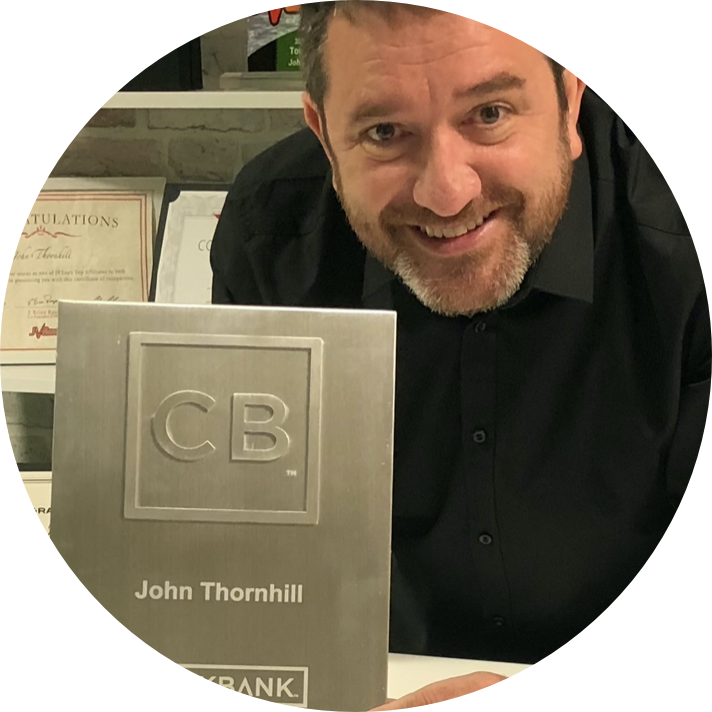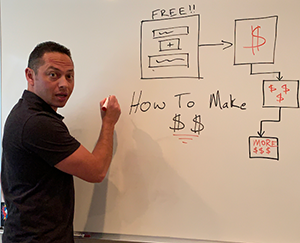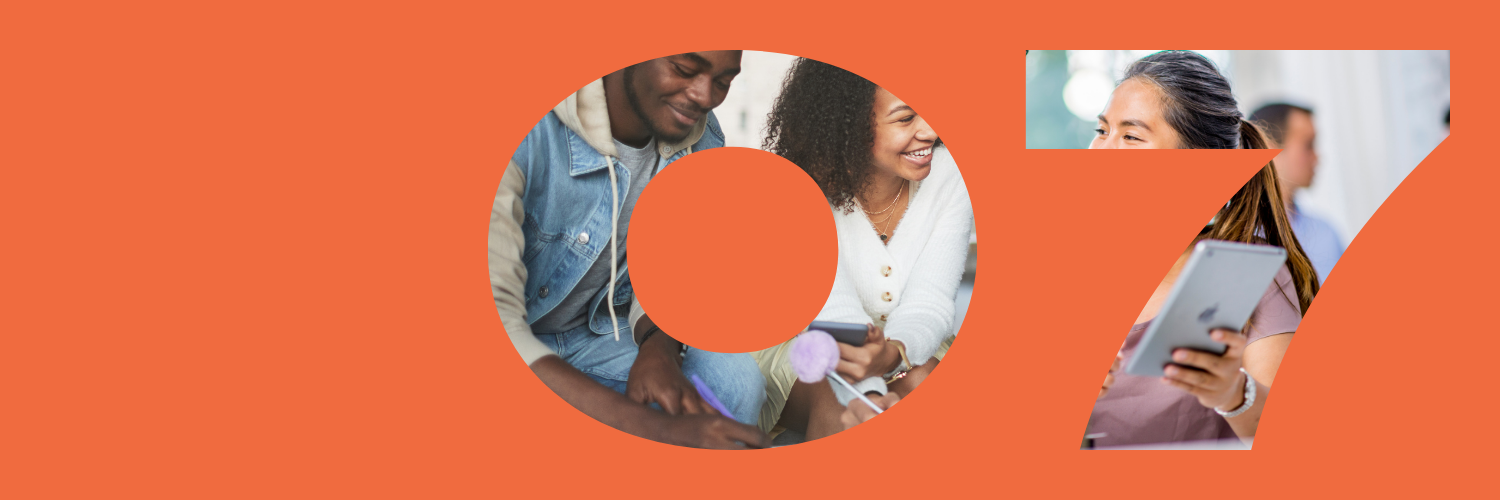Run Highly-Effective Teams By Creating Principle-Based Habits written by John Jantsch read more at Duct Tape Marketing
The Duct Tape Marketing Podcast with Kory Kogon In this episode of the Duct Tape Marketing Podcast, I had the pleasure of interviewing Kory Kogon, Vice President of Content Development at FranklinCovey. With over 25 years of business expertise spanning frontline roles to executive leadership, she brings a deep understanding of how to apply FranklinCovey’s […]
Run Highly-Effective Teams By Creating Principle-Based Habits written by John Jantsch read more at Duct Tape Marketing
The Duct Tape Marketing Podcast with Kory Kogon
In this episode of the Duct Tape Marketing Podcast, I had the pleasure of interviewing Kory Kogon, Vice President of Content Development at FranklinCovey. With over 25 years of business expertise spanning frontline roles to executive leadership, she brings a deep understanding of how to apply FranklinCovey’s world-renowned content to drive success within organizations. Her insights into the strategies and principles for building exceptional leaders, robust systems, and winning cultures demonstrate how FranklinCovey’s blended learning solutions create real, practical impact—enabling the critical behavior changes needed for transformational results.
She is a co-author of the #4 Wall Street Journal bestseller The 5 Choices: The Path to Extraordinary Productivity, and Project Management Essentials for the Unofficial Project Manager.
In this episode, we discuss the enduring relevance of The 7 Habits of Highly Effective People 35 years after its release and explore how these principle-based habits can be applied in contemporary settings. Kogon shares her insights on being proactive, the importance of empathy in communication, effective time management, and fostering a culture that embraces these habits. She also touches on the significance of well-being in the workplace and how organizations can support their employees’ mental health.
Key Takeaways:
- Habit one, be proactive, is foundational for leadership.
- Empathy in communication is critical in today’s world.
- Time management is about prioritizing what’s truly important.
- Building a culture around the Seven Habits takes time and effort.
- Well-being is essential for productivity and effectiveness.
- The principles of the Seven Habits remain unchanged over time.
- Organizations must listen to their employees’ needs for well-being.
- Effective leaders model the behaviors of the Seven Habits.
- Understanding others’ perspectives can prevent miscommunication.
Questions I asked Kory Kogon:
More About Kory Kogon:
- Check out Kory Kogon’s Website
- Connect with Kory Kogon on LinkedIn
- Grab a copy of The 7 Habits of Highly Effective People
This episode of the Duct Tape Marketing Podcast is brought to you by:
Oracle
Nobody does data better than Oracle. Train your AI models at twice the speed and less than half of the cost of other clouds. If you want to do more and spend less, take a free test drive at Oracle.
Testimonial (00:00): I was like, I found it. I found it. This is what I’ve been looking for. I can honestly say it has genuinely changed the way I run my business. It’s changed the results that I’m seeing. It’s changed my engagement with clients. It’s changed my engagement with the team. I couldn’t be happier. Honestly. It’s the best investment I ever made.
John Jantsch (00:16): What you just heard was a testimonial from a recent graduate of the Duct Tape Marketing certification intensive program for fractional CMOs marketing agencies and consultants just like them. You could choose our system to move from vendor to trusted advisor, attract only ideal clients, and confidently present your strategies to build monthly recurring revenue. Visit DTM world slash scale to book your free advisory call and learn more. It’s time to transform your approach. Book your call today, DTM World slash scale.
(01:02): Hello and welcome to another episode of the Duct Tape Marketing Podcast. This is John Jantz. My guest today is Kory Kogon. She’s Franklin Covey’s vice president of content development and a senior leadership consultant with over 25 years of business expertise from the frontline to the executive team. She understands the application of Franklin Covey’s world-renowned content within organizations, including the strategy and principles necessary to build great leaders systems and winning cultures. So we’re going to talk a little bit about, this is almost a revisit. We’re going to talk a little bit about the seven Habits of Highly Effective People. A book that was out actually came out last century, has sold millions and millions and millions of copies and certainly is as rings as true today as probably ever. So Kory, welcome to the show.
Kory Kogon (01:52): Oh, thank you so much for having me, John. It’s a pleasure.
John Jantsch (01:55): So you continue to evolve and create content around the whole Seven Habits concept, but give me a little bit of what’s your history with Franklin Covey with maybe with the Seven Habits Library?
Kory Kogon (02:14): Well, we will take you back just a Scot before that. I’ve been with Frank Company for 18 years, so had the pleasure and honor of knowing Steven before he passed away in 2012. But prior to that, I was the vice president of worldwide operations for a global franchise company. And so myself and the CEO ensured that we had a seven habits culture.
(02:39): I was a franchise organization and around the world, a seven habits culture. And so my familiarity started there and it was only sort of by accident, but not really that I ended up at FranklinCovey. And so as a consultant first, and then as part of the practices around productivity and leadership. So my familiarity with Seven Habits goes way back to implementation within small businesses and then bringing that practical business experience with me to FranklinCovey, to blend it with things like the Seven Habits to really help organizations across sectors move forward. So that’s a little bit about my journey.
John Jantsch (03:24): So whenever an author or we’re talking about a book that’s like 200 ways to do X or seven habits or whatever the number might be, I always like to tease people and say, do you have a favorite favorite of the habits?
Kory Kogon (03:42): Yes, I do Habit one. Habit one, be proactive, which is the habit of choice. And I’ll tell again, very practical, very pragmatic. I’m an operations executive. Steven talks about being proactive, not reactive. So as a leader in particular or as an individual contributor, being reactive to everything makes you come off as victimized and just not as somebody who makes things happen. And Steven talks about the space between stimulus and response, and that’s why it’s my favorite because if I’m good at, okay, something’s triggering me before I hit the send button, can I count to 10 and think about what outcome I really want? And my whole career has been like that. To me, that’s being proactive and it saved me both personally and professionally many, many times. So happy one is very foundational and truly for me it is totally my favorite one.
John Jantsch (04:44): Well, and I recall in interviewing both Steven and his son Steven. Hm. Is that right? Hm.
Kory Kogon (04:51): Steven hr.
John Jantsch (04:52): Oh, hr, sorry, got
Kory Kogon (04:54): That. I’m sorry. Stephen. MR Covey,
John Jantsch (04:56): Steven, Mr. Boy, we both are messing it up. Steven, Mr. I remember some reference to Vitor Frankl in
Kory Kogon (05:03): His work
John Jantsch (05:03): Actually in that particular habit.
Kory Kogon (05:07): And again, just we say you have the power to choose your response. And again, Viktor Frankl was a terrible experience and just we learned a lot from how he handled the circumstances he was in. So you choose, you get very self-aware that we call it emotional intelligence in this day and age, self-awareness, get very self-aware to just before you, whatever circumstance you’re in, how can I think about how to deal with it in a way that I can live through it?
John Jantsch (05:40): Yeah, between stimulus and response, there is a moment and in that moment lies our freedom.
Kory Kogon (05:44): There you go.
John Jantsch (05:45): I think is the actual quote. Would you say because of your familiarity, sort of a long familiarity with the work, has the world changed in a way that has changed of those habits? Have any of those habits become more relevant? Just kind of talk to me a little bit about the evolution, I guess, of over 35 years.
Kory Kogon (06:05): Yeah, so the thing about the Seven Habits is that it is principle based.
(06:13): And I was just rereading this morning, Dr. Covey’s, when he was asked these questions, I was reading a transcript of an interview and he was so clear before he passed away in 2012, and we feel the same today. So even we just spent millions of dollars in relaunching and contemporizing the workshop, the course around the seven habits, and the habits didn’t change, the principles didn’t change, just how we applied them in a contemporary way that people really can consume and remember and do something with. So it’s how you point these principles and habits. And as Steven would say, as the more turbulent, the more challenging the world gets, the more important these habits and principles are. And that’s a true statement.
John Jantsch (07:08): So I’m going to, you didn’t ask me to, but I’m going to tell you my favorite. And that is seek first to understand, then to be understood. I think that a lot of miscommunication, and I asked the question about has the world evolved or changed, I feel like we’re in this moment where that habit is probably more important than I can ever remember it being.
Kory Kogon (07:30): I really appreciate that. And I didn’t want to interrupt you before, so I didn’t ask you that question. And I’ve taught this hundreds of thousands of times I think, and keynoting it now and speaking to groups as we’re relaunching and since the pandemic. I’m with you, John, because with the remote hybrid, the state of the world, there’s a lot of pain going on. And whether a personal or professional, if you are not listening, empathically to others, seeking first understand and putting yourself in others’ shoes and sort of not absorbing, but acknowledging the pain they might be in or the excitement that they’re in, and really understanding them without trying to fix things and do the whole autobiographical listening thing, giving them space and empathy to really feel safe, to be able to have a conversation and move to action. So I’m with you, it has become critical that whether you’re in a family, in a small business or a big business, that you are listening to each other deeply.
John Jantsch (08:43): I remember a story from the book that really, I remember drove that point home so much that we have absolutely no, especially a stranger, we have absolutely no idea what’s going on in their life. And there was a story about a man on a bus and he had, I dunno if you recall it, but there were children that were being unruly and he wasn’t paying attention to them at all. And everybody thought how rude that was, and he should take those children, take care of ’em. Well, turns out the story is his wife has just passed and nobody, you have no idea what it is going on in somebody’s life. And I think that story and that lesson really probably, or that principle really probably impacted me at a really early time in my career, probably more than anything.
Kory Kogon (09:24): Yeah, it’s a classic story around a paradigm. And Steven says, I was like, why doesn’t he get ahold of his kids? Whatever. So we had a paradigm shift, and that is really the basis of the seven habits is how do we help people become very, very aware that the way we think about things may not be exactly that and how we behave and show up in the world. Maybe if we were open to examining our paradigms, we could make good changes that make us more effective. And don’t go down those kinds of rabbit holes like Steven did with making that kind of assumption.
John Jantsch (10:04): AI might be the most important new computer technology ever. It’s storming every industry and literally billions of dollars are being invested. Buckle up. The problem is that AI needs a lot of speed and processing power. So how do you compete without cost spiraling out of control? It’s time to upgrade to the next generation of the cloud. Oracle Cloud infrastructure or O-C-I-O-C-I is a single platform for your infrastructure, database, application development, and AI needs. OCI has four to eight times the bandwidth of other clouds offers one consistent price instead of a variable regional pricing. And of course, nobody does data better than Oracle. So now you can train your AI models at twice the speed and less than half of the cost of other clouds. If you want to do more and spend less like Uber eight by eight and Databricks Mosaic, take a free test drive@ociatoracle.com slash duct tape.
(11:02): That’s oracle.com/duct tape oracle.com/duct tape. So this book was probably the first place I was introduced. I mean the whole four quadrant thing has been around since consulting was invented, but it was the first place where I really saw a clear picture of the idea of the stuff that’s nagging you but it’s not important and the important stuff that is also needs to be done or is the most impactful. That idea of, I don’t think he called it time management necessarily, but it was really more along the lines of if you just stay focused on the important stuff that’s actually going to be high payoff, then that’s probably all you need to focus on.
Kory Kogon (11:51): Yeah. So that’s habit three first things and that became so popular and important. He sort of blew that up into a bigger book and first it was achieving focus, achieving highest priorities. Now we have the five choices, the path to extraordinary productivity and the time matrix is a core part of that because, and he did call it time management, it’s a time matrix where you really have a process by which you can synthesize, let me get really clear on what’s most important, and then how do I make sure that I’m mitigating or eliminating the things that may be less or not important. So your brain needs a process, and so the time matrix is really helpful to that.
John Jantsch (12:35): Well, and we work with a lot of entrepreneurs, some of our solopreneurs, and what gets in the way with them so often is there’s things that they’re doing that they shouldn’t be doing at all. But then there’s certainly things that somebody else, one of my great examples, get that off your plate delegate that there’s lots of people who actually enjoy doing that. And I think that once people get to the point where they’re like, yeah, I shouldn’t be doing this. That’s not important. I can delegate this because frankly I don’t like doing it anyway, then all of a sudden you’re like, okay, maybe I do have the time for the important stuff.
Kory Kogon (13:08): It is, I’m sorry.
John Jantsch (13:10): I was just going to say it’s hard for people though because we’re just so focused on like, oh no, this thing is yelling in my ear so I better do it.
Kory Kogon (13:18): And I like to call from the neuroscience world labeling and reappraising. If I just write down, take the time to really write down what’s important. Tell you even and working in my past in the franchise business and helping support small businesses, we found that some of the entrepreneurs would do bookkeeping or go sweep the floor because they didn’t want to go out and sell. So they sort of knew. So there’s a whole psychology around some of that. And when you have a framework and you have a process, and again, that’s what effectiveness is all about, what are the tools that can support how I can get really clear on what’s important and come to terms with those things that maybe I shouldn’t be doing? Because if I don’t do that, I’m not going to achieve my end in mind of a successful business.
John Jantsch (14:07): How have you seen leaders? Because sometimes when you read some of these kind of bigger principles, they feel very much like leadership training and leadership skills. But in an effective organization, we have to also drive those down throughout whatever ranks. So how have you found leaders have been effective at not just embracing this but not because there is kind of a danger of buying courses and buying, it’s like, here go to this stuff. But how do you, have you seen organizations make seven habits almost a culture?
Kory Kogon (14:44): It’s a very good question. It’s not easy. I mean, it’s a very real question you’re asking. We’ve had clients that I can’t name here, but that have been with us for 25 years as seven habits companies and we were in my prior organization as well, and we made it part of the culture, what we know. I’ll tell you what my executive chairman used to say, Kory, if you want to win a championship game, you can’t just read a book, even if it’s the seven habits, you can’t just read a book or watch a video. He said, if you want to win the game, I’m not going to say to you, Kory, go watch a video on how to throw the ball and show up on Saturday to play the big game. And so our whole philosophy is around that. And with the seven habits, it’s a surround sound, how do we and Steven created the maturity continuum to give you an accessible, memorable framework and the see do get model around behavior change.
(15:45): And beyond that it’s how do we consume or digest these principles and the pragmatic practices that go along with it and really encourage people to practice it and speak the language over time. And so what’s the sustained learning to really turn it into a culture? And I think that small wins along the way really helped that. So our organizations really, they have posters up, they’re speaking the language, they’re behaving what they’re learning and small fires with groups of people start to people look in and go, Hey, wait, what are they doing? It looks like they’re doing great. I want some of that. So it takes work, but it’s certainly doable. And we’ve had some great organizations that really everybody speaks the language of the seven habits.
John Jantsch (16:36): So to me, over the last 20 years, one of the most gratifying things to see is a lot of the things that we’re talked about in this book, time management, better leadership skills, better communication skills, were all things seen as hard skills for leaders to learn. This book was really one of the first that the seventh habit sharpened the saw that MINDBODY spirit maybe are all a part of this in terms of you being effective. And one of the most gratifying things I’ve seen is the last, over the last 20 years, that’s become a very mainstream thought as well, hasn’t
Kory Kogon (17:07): It? Wellbeing? So wellbeing more than ever as people are working harder than ever
(17:14): And all of that. So we still, even in our new program, it is you have to sharpen saw, and Steven always said it again, even reading this morning, he said, the more high tech, the more high touch, and I do a lot of work around the implementation of AI and human capability and hybrid intelligence and all that. And I read that and I thought he was, so before his time on it, wellbeing is key, sharpen the saw. He said, you can’t do the first six habits without sharp because I find it incredibly difficult to pause and just be the kind of person I should be, whether it’s at home or at work, but it is right at the top. The younger generations will not work in organizations that do not have substantial things around how are you going to help me with my wellbeing? Seven habits are no seven habits. It’s a mandate.
John Jantsch (18:15): And I think that that was brought into sharp focus. I think after the pandemic, the whole quiet quitting thing that people talked about, a lot of it was like, I’m not getting charged recharged here. I think I’ve made a decision to leave. So I think that that habit is one that a lot more companies are at least coming to terms with.
Kory Kogon (18:38): Absolutely. And all kinds of quiet, quitting resignation, all of those things. And even with the economy changing and companies doing some layoffs and all of that, the younger generations are not going back. I mean, it is really significant for them to have a sense that an organization will care about their wellbeing. And I know there’s organizations today out there that are like, Nope, you need to work 24 hours a day or you can’t work here. And people will make their choices. But principally people, humans have to sharpen the saw. And that’s why that’s a timeless principle at a very timely point in the world right now.
John Jantsch (19:22): And it’s funny, it’s one that people say, oh, I don’t really have time to take to do that. Well, I think science proves it, but anecdotally, I can tell you if I exercise, I do better work. And so I take the hour to do that. I’m going to be way more productive the next three, four hours doing the work. So while it may seem counterintuitive, it certainly science backs it as a way to actually be more productive.
Kory Kogon (19:50): And in the new course we even have in there just a little research on the detriment of back-to-back zoom meetings or teams meetings, whatever you’re on, and the stress levels by not taking breaks. So I mean, it’s really critical. And whether it’s leaders or personally we go, we can’t see it. It’s like Steven, if you remember the famous line, he said, are you too busy driving your car to stop to get gas? It’s the same thing here. So into our overwhelm, we can’t see it. And unfortunately we know that over statistically, we know that over half of people will not do something about burnout until they are burnt out, which is terrible.
John Jantsch (20:37): Yeah, yeah. It’s like boiling the frog.
Kory Kogon (20:40): Exactly.
John Jantsch (20:42): You don’t realize it because it just happens gradually and then it happens all at once.
Kory Kogon (20:46): Right. So very timeless principle as habits its own. That’s right.
John Jantsch (20:50): So Kory, I appreciate you taking a moment to stop by the Duct Tape Marketing Podcast. Is there somewhere you’d invite people to tell us a little bit about how somebody can consume the course or where they might find out more?
Kory Kogon (21:02): Sure. Very simply, just go to www franklincovey.com and on the homepage you’ll probably see a lot about our launch. If not just search seven habits. But it should come right up for you, right in the middle of a big launch world tour right now. So thanks John for asking.
John Jantsch (21:20): Awesome. All right, well again, I appreciate you stopping by the podcast and hopefully we’ll run into you one of these days out there on the road.
Sign up to receive email updates
Enter your name and email address below and I’ll send you periodic updates about the podcast.
Recommended Story For You :

How To Make $3493 Commissions Without Doing Any Selling

Successful dropshippers have reliable suppliers.

People Think I Use A Professional Voiceover Artist. NO! I Just Use Speechelo!

Make Money Testing Apps On Your Phone Or Tablet

Make More Money or Lose Everything

Sqribble Is The ONLY eBook Creator You’ll Ever Need.

Work & Earn as an Online Assistant

Create Ongoing Income Streams Of $500 To $1000 Or More Per Day

It's The Internet's Easiest Side Business.






